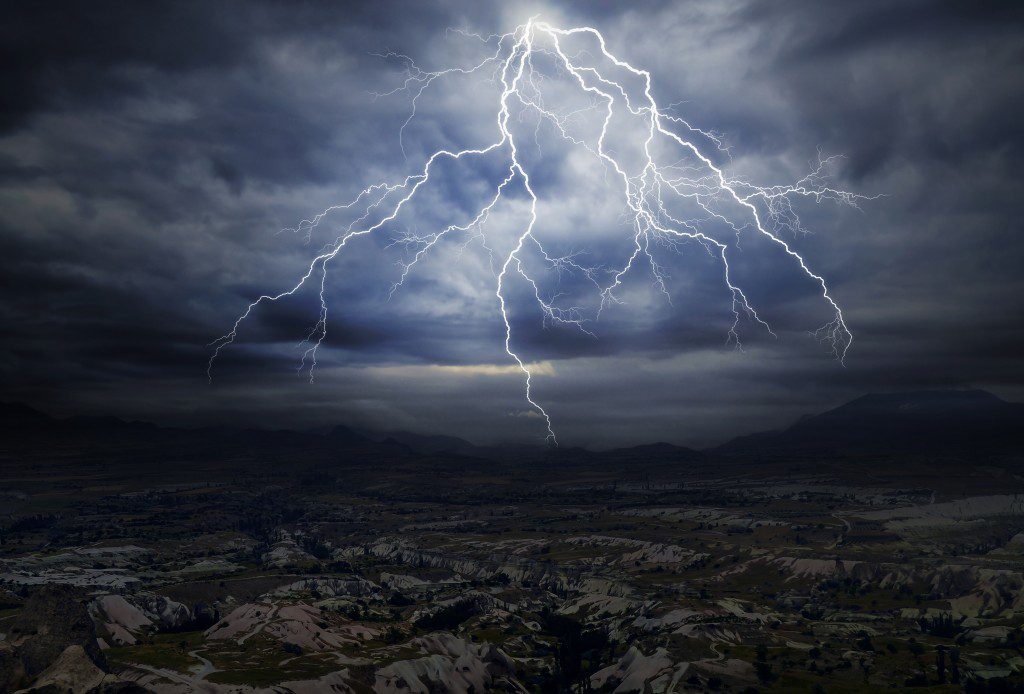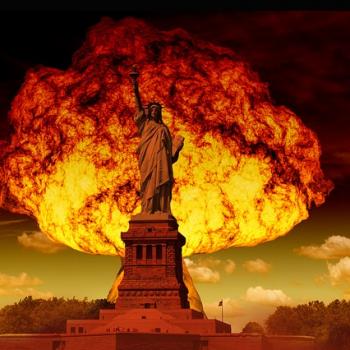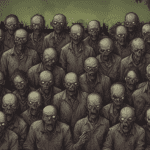For those of us who left a hell, fire, and brimstone Christianity, one of the critiques that gets levied at is us that we either ignore or downplay the wrath of God.
To be honest, I think there’s some truth in that critique, and that it’s important for those of us here (wherever here is) to develop a vision of God’s wrath that is faithful to the narrative of Scripture, but one that also avoids the pitfalls of the version of God we grew up with.
To develop a healthy understanding of the side of God that appears as wrath, I think it’s important to begin with the essence of who and what God is: love.
In the book of 1 John we’re told that God is love. Period. Everything about God is purely loving, and everything that is good and beautiful. In fact, as argued by Dr. Thomas J. Oord in his most recent book, God is actually constrained by love and is unable to do anything that would be less than perfectly loving.
So, if God is totally and completely love, where does the wrath part come in?
Well, I think that’s best seen by considering God’s loving activity in the world.
Early in the biblical narrative we see a story that starts off perfect, but quickly becomes broken—sending the story in an unintended diction of death and destruction. Almost immediately after that entrance of brokenness, God promises that he will begin working to eradicate all those forces of destruction from his creation, until everything returns to the way it was in the beginning. (See Eden Restored at the end of Revelation.)
The climactic moment of God’s involvement to right the brokenness of the world was when God came in the flesh, in the person of Jesus. In fact, the author of the book of 1 John summarizes the entire purpose of the life of Jesus by saying he came to “defeat the works of the Devil.”
The works of God have always been works of love. They will always be works of love.
The original work of God was to create a world where all relationships existed in perfect harmony—his relationship to humanity, our relationship to the environment, and our relationships with each other.
Since the moment brokenness entered this narrative, the mission of God has been to restore all those broken relationships.
God wants to restore humanity to a right relationship with him.
God wants to restore humanity to a right relationship with the environment.
God wants to restore humanity to right relationships with each other.
The works of God are works of love and restoration. They always have been, and always will be.
And our purpose in the world? Our purpose is to partner with God, to align our wills with his, and to get busy restoring all these broken relationships.
And here’s the problem: not everyone is on board with that mission. There are powers, principalities– even people who resist– and who stand in opposition to the works of love and restoration.
Those who are opposed to God’s love and restoration in the world will experience an aspect of God’s love that feels like wrath, because the forces that oppose love will one day be either transformed or eliminated from creation.
There simply is no room in God’s story for these opposing forces to exist forever—it’s a story of purging all that is not loving, until everything is restored and only love remains.
Love does this, no? Love cannot sit passively by and let the opposite of love win. (Subtle shout-out to Rob Bell there.)
Love purges war, famine, disease, oppression, hatred, violence, and everything else that fights against love. It’s what love does.
Love heals. Love feeds. Love clothes. Love frees. Love embraces. Love reconciles.
Those who refuse to partner with love, and insist on continuing to fight in opposition to all that love does, will experience a side of love that does not feel like love. To them, it might even feel like wrath.
Thus, when we affirm the “wrath of God” it’s not so much an affirmation of wrath at all—but an affirmation of love.
We’re not saying that God = love + wrath. It’s not an affirmation that God is love but also happens to have a short fuse we need to avoid.
Instead, it’s simply an affirmation that God is on a mission to love and reconcile the world. Everything that once was broken, is in the process of being fixed and restored– because that’s what love does.
However, it is also a recognition that all those who fight against love and reconciliation will ultimately be on the wrong side of love.
To those who refuse to heal, refuse to feed, refuse to clothe, refuse to free, refuse to embrace, and refuse to reconcile– to those who refuse to love– God’s love won’t feel like love at all.
And this experience of resisting and fighting against a love that wins in the end, is what we talk about when we talk about the “wrath of God.”
 Dr. Benjamin L. Corey is a two-time graduate of Gordon-Conwell Theological Seminary and holds his doctorate from Fuller Theological Seminary. He is also the author of the new book, Unafraid: Moving Beyond Fear-Based Faith, which is available wherever good books are sold. www.Unafraid-book.com
Dr. Benjamin L. Corey is a two-time graduate of Gordon-Conwell Theological Seminary and holds his doctorate from Fuller Theological Seminary. He is also the author of the new book, Unafraid: Moving Beyond Fear-Based Faith, which is available wherever good books are sold. www.Unafraid-book.com
You can also follow him on Facebook:

















